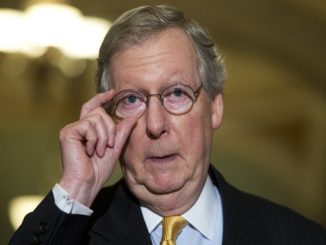
At dinner with China’s president, Xi Jinping, on Saturday night in Buenos Aires, President Trump celebrated their “special” relationship and all but predicted they would emerge with a truce in the trade war between the United States and China.
Seven thousand miles away, unbeknown to both leaders, Canadian police acting at the request of the United States were in the process of detaining Meng Wanzhou, a top executive of one of China’s flagship technology firms, as she changed planes in Vancouver, The New York Times informs.
The Justice Department is investigating Meng’s company, Huawei, on charges of violating sanctions on Iran, and her arrest was meant as a warning shot by the Trump administration in its campaign to limit the global spread of Chinese technology. But it has thrown Trump’s trade negotiations with Beijing into disarray, drawing a sharp protest from the Chinese government and sending financial markets into a panicky swoon, before a modest recovery on Thursday afternoon.
The timing of the arrest, some experts said, could feed the suspicion of Chinese officials that nationalist factions in the Trump administration were trying to sabotage the trade deal. Their mood had already soured since Saturday, when the White House announced the two sides had agreed to 90 days of talks, amid confusion over the timetable and doubts that the Chinese would agree to the trade concessions described by Trump.
“To detain someone without giving clear reason is an obvious violation of human rights,” said Geng Shuang, a spokesman for China’s Foreign Ministry, who demanded Meng’s immediate release.
For Xi, these experts said, the episode might be seen as an embarrassing loss of face, The Times noted.
Huawei and Meng, who in addition to being the company’s chief financial officer is the daughter of its founder, are at the pinnacle of China’s corporate world, which will increase the pressure on Xi to demand her release. It will also increase the pressure on Trump to weigh the diplomatic fallout of detaining Meng, especially after a meeting that he hailed as a breakthrough and a testament to his friendship with Mr. Xi.
The United States and China have carried on trade negotiations amid such tensions before. Talks continued this year as the administration was planning to punish ZTE, another Chinese technology company that violated American sanctions, though Trump ultimately offered it a reprieve.
“In the past, the United States has been faced with making a deal with China in one arena while being irritated or highly concerned about others, such as human rights or security,” said Scott Kennedy, a China expert at the Center for Strategic and International Studies. “The shoe is now on the other foot, and we will have to see if China can compartmentalize this case.”
Trump’s national security adviser, John R. Bolton, said on NPR that he knew about the arrest in advance, though he did not confirm that he was told about it before the dinner. Such notifications from the Justice Department “happen with some frequency,” he said, and “we certainly don’t inform the President on every one of them.”
But the Justice Department did give advance notification to the chairman of the Senate Intelligence Committee, Senator Richard M. Burr, Republican of North Carolina, and its ranking Democrat, Senator Mark Warner of Virginia, according to two officials.
Former American officials said the awkward timing of it was most likely a coincidence that grew out of the unpredictable travel schedule of Meng. For American officials and the White House, the fact that Trump went into the meeting without knowing about the arrest raised questions about whether the President was properly briefed before a sensitive meeting with a foreign leader, The Times points out.
The news outlet also notes that American officials have raised questions about how closely linked Huawei is to Chinese security agencies and the People’s Liberation Army. The founder of Huawei and Meng’s father, Ren Zhengfei, is a former army engineer who has become one of China’s most successful entrepreneurs. American officials are pressing other countries to not enter into deals with Huawei on developing fifth-generation, or 5G, wireless service networks.




Be the first to comment